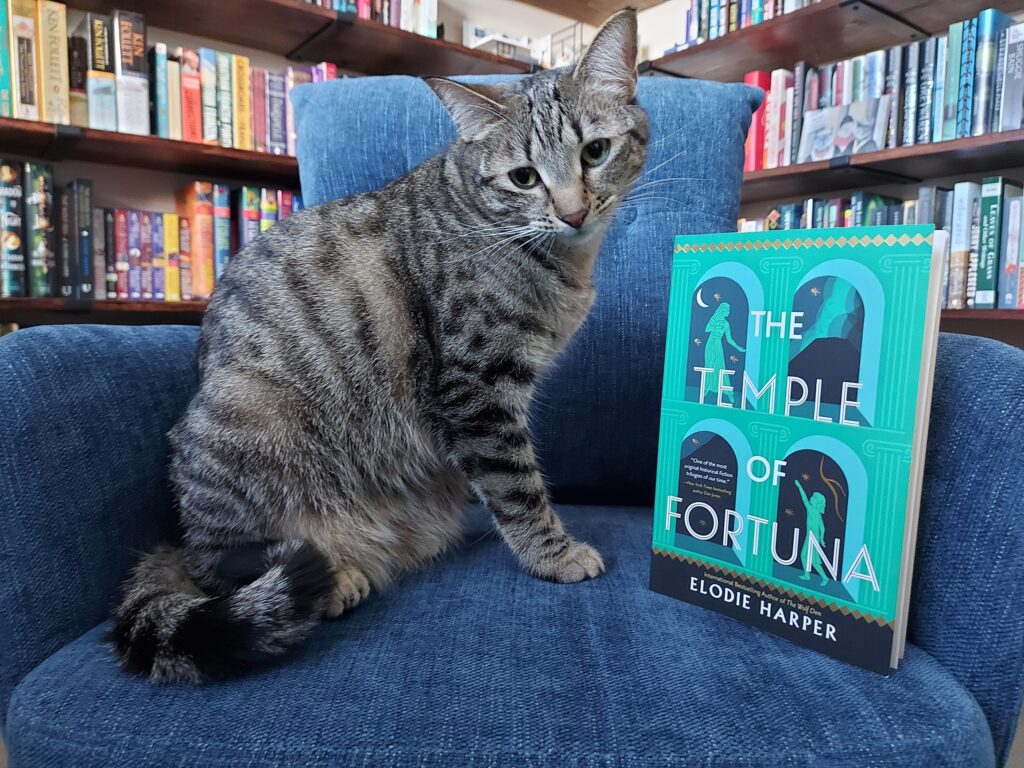The Temple of Fortuna by Elodie Harper

The Temple of Fortuna is the final novel of Elodie Harper’s Wolf Den Trilogy, preceded by The Wolf Den and The House with the Golden Door. I like The Temple of Fortuna better than The House with the Golden Door, but the first novel in the trilogy, The Wolf Den, is definitely the best one (as is usually the case). Overall, I think the Wolf Den Trilogy is worth reading. As disappointing as Amara’s character development is, I appreciate Harper’s efforts to recreate Pompeii for her readers. Do not read any further if you have not read the first two novels of the Wolf Den Trilogy yet.
The Temple of Fortuna opens in Rome in 79 CE right before the eruption of Mount Vesuvius. Amara has been living in Rome for a few years with her current patron, Demetrius, and enjoying the riches that come with being a concubine to an important man. The cunning and intelligent Amara from the first novel seems to be back, the one that does not take shit from any man. Then a threat on Amara’s life sends her back to the safety of Pompeii, or so she thinks. The city is being plagued by a series of earthquakes that no one seems to be too concerned about.
Amara is reunited with her daughter, Rufina, who is now three years old and not sure what to think of her mother, as well as her love from book two, Philos, who Amara just can’t seem to quit even though Demetrius has decided to marry Amara, which will provide her safety and comfort for the rest of her life. Also back is Britannica, who is now a gladiator and at this point the best character in the trilogy. And of course Felix, who keeps turning up like a horror movie monster that just will not die.
The return of Amara to Pompeii leads to Amara becoming a passive character. She spends a lot of time dithering over whether to chose Philos, who she loves, or Demetrius, who can offer her and her daughter security so that Rufina never has to experience life as Amara has. Then Mount Vesuvius erupts, and Philos has the smart idea to get the hell out of Pompeii. Amara pretty much spends the rest of the novel following him around, and I feel like the position she ends up in at the end is a blow to female autonomy.
Despite my feelings about Amara’s character trajectory, Harper’s description of the eruption of Mount Vesuvius, the destruction of Pompeii, and the aftermath for the survivors who are now refugees is harrowing and make this final novel in the Wolf Den Trilogy worth reading.